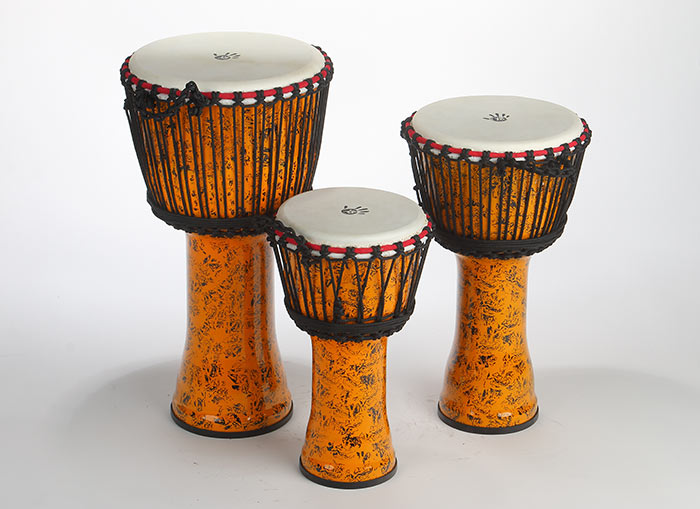What is the Best Size Djembe for Beginners?
If you're new to the world of percussion and interested in learning the djembe, you're in for a treat! This West African drum is not only versatile and fun to play but also offers a rich cultural experience. One of the first decisions you'll need to make is choosing the right size djembe. With various options available, it's essential to find a size that suits your needs and helps you enjoy the learning process. Let's dive into the factors that can guide you in selecting the best size djembe for beginners.
Understanding Djembe Sizes
Djembes come in a range of sizes, typically categorized by the diameter of the drumhead. The most common sizes are:
- Small (7-10 inches): These djembes are often considered toy or children's drums. They're lightweight and easy to handle, making them suitable for young children.
- Medium (10-13 inches): This size is ideal for older children, teenagers, and smaller adults. It's a great balance between portability and playability.
- Large (13-16 inches): Suitable for adults, these djembes offer a deeper, richer sound and more playing surface.
- Extra Large (16 inches and above): These are professional-grade drums, providing the fullest sound but can be quite heavy and challenging to transport.
Factors to Consider for Beginners
When choosing the best size djembe for beginners, consider the following factors:
- Age and Size of the Player:
- Children and Younger Players: For children under 10, a small djembe (7-10 inches) is usually the best choice. It's light enough for them to carry and handle, and the smaller drumhead fits their hands well.
- Teenagers and Smaller Adults: A medium-sized djembe (10-13 inches) strikes a good balance for teenagers and smaller adults. It offers a richer sound than the smaller models while still being manageable in size and weight.
- Adults: Larger adults may prefer a large djembe (13-16 inches) for its fuller sound and larger playing surface. However, it's important to ensure the drum is not too heavy to carry and play comfortably.
- Portability:
- If you plan to take your djembe to classes, drum circles, or performances, consider how portable the drum is. Medium-sized djembes are generally easier to transport than larger models while still providing a good sound quality.
- Sound Quality:
- Larger djembes produce deeper and richer tones, which can be more satisfying for some players. However, for beginners, it's often more important to focus on learning technique and rhythm rather than achieving the perfect sound right away.
- Budget:
- Djembes come in a wide price range. While it's tempting to invest in a larger, more expensive drum, starting with a medium-sized, reasonably priced djembe can be a smart choice. You can always upgrade later as you become more experienced and committed to playing.
Recommendations
For most beginners, a medium-sized djembe (10-13 inches) is an excellent choice. It offers a good balance of sound quality, portability, and playability. Here are a few popular options to consider:
- 10-inch Djembe: Perfect for older children and small adults, this size is lightweight and easy to handle, making it a great entry-level drum.
- 12-inch Djembe: This is a versatile option that suits a wide range of players. It's large enough to produce a satisfying sound but still manageable for beginners.
Conclusion
Choosing the right size djembe is crucial for beginners to ensure an enjoyable and comfortable learning experience. By considering the player's age and size, the drum's portability, sound quality, and budget, you can find the perfect djembe to start your musical journey. Remember, the most important thing is to have fun and enjoy the process of learning and making music. Happy drumming!
Ready to find your perfect djembe? Check out our selection of beginner-friendly djembes here and start your rhythmic adventure today!
Recent Posts
-
X8 Drums Play-Along Backing Tracks
The new X8 Play-Along Series is being produced for our musician friends wanting a fresh way to work …9th Feb 2025 -
What is the Best Size Djembe for Beginners?
If you're new to the world of percussion and interested in learning the djembe, you're in for a t …16th Jul 2024 -
The Benefits of Becoming a Drumming Teacher: Transforming Passion into Profession
Why become a drumming teacher? Becoming a drumming teacher is an excellent way to share your pas …22nd May 2024





